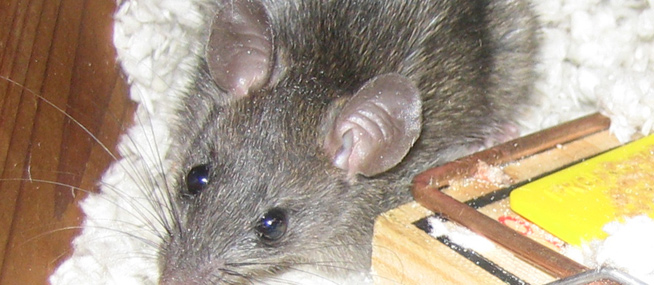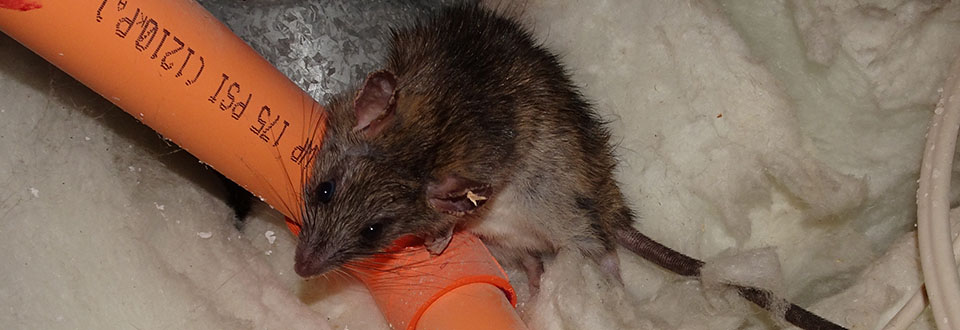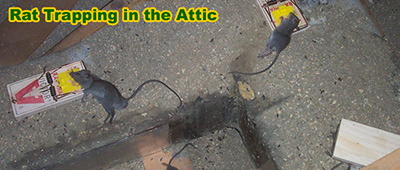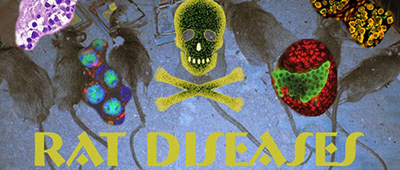Rats are often given quite a bad reputation, a slightly unfair one when you consider these are just rodents trying to make their way in life. Used in horror movies, and often depicted as something dangerous, vicious, and generally unpleasant, they do carry with them their fair share of nasty and dangerous diseases, perhaps giving you more of a reason than a horror-story gimmick to dislike this rodents with vengeance.

Going back to the myth, however, of rats attacking human necks and throats … Well, if we're being honest about this, most rats are going to run away, rather than try to stay and fight. They don't want to fight you. They don't want to attack you. They just want to escape from the room they are currently cornered in, and be free to go about their business again. For the record, their business is sleeping for seventy-five percent of the day, spending the rest of that time grooming and socializing with fellow rats in the group, and spending the nighttime foraging for food, which they will then hoard.
Rats are more scared of humans than we humans are scared of them, and that's saying something. If a rat was left alone with a baby in the room, the rat would more than likely run away, scurry through a hole, never to be seen again. The rat probably won't go for that baby, unless the baby has the rat cornered and is trying to play with it. If the rat can't get away, it will lash out in every and any way that it can, and if that means going for human flesh, that's just the way it will go.
Rats do not specifically hunt out human throats, however, and this is where the myth-bit comes into play. Rats actually have incredibly poor eyesight, instead relying on their amazing sense of smell and sensing of air flow to get around. They probably wouldn't be able to see your throat / neck, so aiming for it would be quite difficult. There's a good chance that the rat is just desperately trying to get out, and with its dim eyesight, just aims for the light. The neck is the slimmest part of the human body, and light would penetrate either side of it. Any cases of the rat trying to “attack a human throat” is probably just a case of the rat trying to get away.
This is not to say that you will not be attacked by a rat, however, and that's why we would always recommend preceding with caution when you have a rat infestation on your hands. Live cage traps put you in the direct line of fire of these animals, and with sharp teeth and claws AND the spread of disease to worry about, this is definitely not a creature you will want to be in close proximity to.
Rats might not go for human necks, but they will attack if cornered. Keep away - use snap traps, or give us a call to see how we can rid your commercial or residential property of rats today.

Rats are undoubtedly one of the most feared rodents amongst people. They enter the property, make it their home, and never turn to exit. Their presence can attract various diseases and other issues. They have very strong frontal teeth that they use to chew wires and other materials and surfaces. One common myth that revolves around rats is that they can use these same teeth to bite human necks. A lot of people believe that myth without reading much into it and then spread the word around. However, there lies absolutely no truth to this myth.
Rats do not bite human necks for various reasons. Firstly, contrary to popular belief they have poor eyesight. It is one of their weaknesses which causes them to see blurry images. Scientists have also tapped into a possibility that rats may be colorblind. If a rat is attacking your neck, it is due to the possibility that there is some light reflecting on it and since its vision is blurry, it has led it to believe it can escape this way. Rats do not attack human necks at all. It is a false belief and assumption that people so casually believe.
Rats are just like any other animals. If they attack you, it is because they feel threatened and that is their conditioned response. If you back it up and trap a rat in a corner, it will most definitely retaliate since its safety and protection is compromised. If you brought your finger, hand, toe, foot, or any other body part near the rat it will bite or scratch you. The only reason why it will behave like this is that it is now trapped and it perceives your actions as attacks. This makes the rat desperate and in this, it sees no other option but to attack in self-defense. It is terrified and sees this as the only way to remain alive. The reaction might differ if the situation is changed. If this confrontation happens on the streets instead of taking place at a property, it will be different. The rat may confront you; however, its natural reaction is to run away rather than staying and fighting. The reason for this is that rats are very scared of humans. They avoid any confrontation and instead try to exist without attracting human attention.
A one-on-one confrontation with a rodent such as a rat is highly unlikely. However, if such a situation and circumstances arise, your first option should be to avoid it all costs. There are many reasons why you should stay away from all rodents, especially rats. The reason being that rats carry many diseases and any sort of confrontation can result in diseases being transferred to you and the people around you. Not only this, but the diseases can also spread to your pets. Furthermore, it can also result in a rat infestation if their population is not controlled. Brown and black rats are both dangerous to humans and contact with them can have serious repercussions. Thus, staying away from rats is the safest option.








